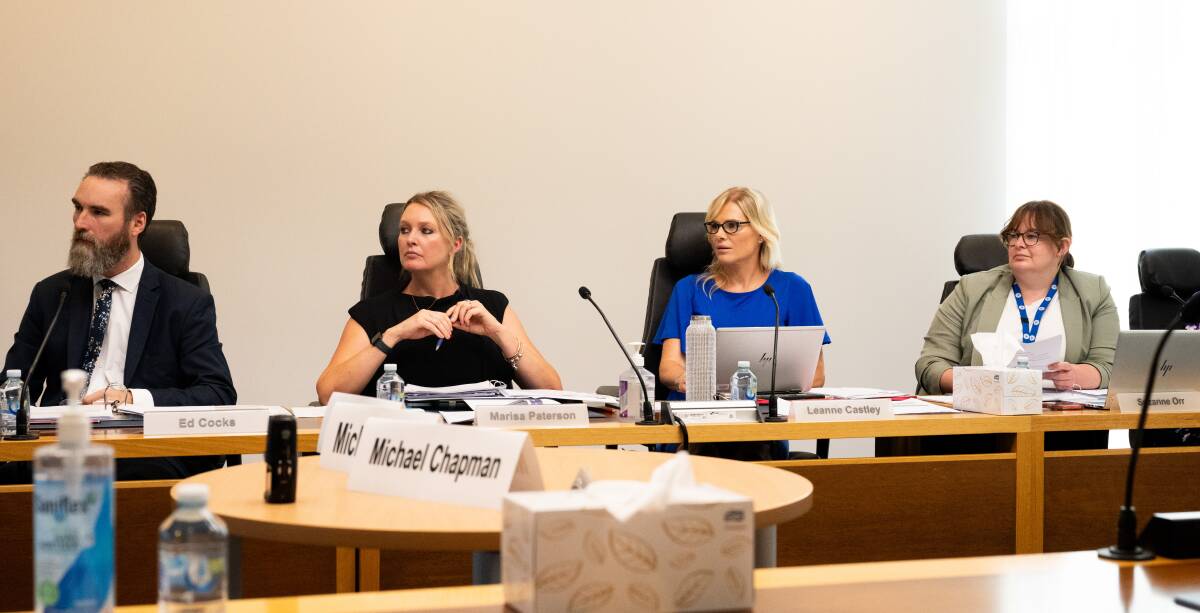The exclusion of children from the ACT's proposed voluntary assisted dying laws had been criticised as "abhorrent" discrimination by Exit International.
Exit ACT chapter lead David Swanton told an inquiry a parent or guardian should be able to make a decision about a terminally ill child in the same way they can make other health decisions.
"The discrimination against children, people who are terminally ill is as abhorrently vile as discrimination on the basis of sex or race," he said.
"Why should we be condemning in this bill that children should suffer. Children must not suffer."
Dr Swanton said parents were able to make decisions around whether a child should receive cancer treatment or an organ transplant and terminally ill children should not have to suffer.
"Why are we limiting voluntary assisted dying to adults only. If you have a two-year-old child, they can't make a decision. Let's say in the terrible circumstance they have three months to live ... They can suffer and die or you here, the legislators, can enable a bill towards not suffering, that's what we think a humane society should be doing," he told the inquiry.
Exit International is a non-for-profit organisation, founded by Philip Nitschke, that advocates for voluntary assisted dying and believes it should be extended to every adult who wishes to access it, not just those who are terminally ill.
The ACT government considered allowing teenagers with decision-making to be able to access voluntary assisted dying but decided against this as the work required would be too complex for what would be an "extremely low take-up".

But the government will review this three years after the laws have taken effect.
Meanwhile, a health law researcher has suggested the eligibility criteria in the territory's bill could inadvertently result in it being more narrow than the Australian states.
Under the ACT's legislation, a person will be able to access voluntary assisted dying if they have an illness that is advanced, progressive, and expected to cause death. A person must be "suffering intolerably" and have decision-making capacity.
The ACT does not have a time frame for an expected death, unlike other states, but they must be in the "last stages of life".
Australian Centre for Health Law Research professor Lindy Willmott said this could be problematic as different health professionals may have different views about the "last stages of life".
"The problems we have with the 'last stages of life' ... firstly it will cause confusion and uncertainty for health professionals assessing eligibility," she said.
"We anticipate that different health professionals will have different views about when someone's in the last stages of life.
"We think it has got the potential to cause confusion and it is undesirable in that it might mean the ACT model becomes narrower than other jurisdictions."
Professor Willmott also said there were concerns about the use of "suffering intolerably" as someone could be experiencing intolerable suffering but are taking medications to lessen the symptoms. She feared it could mean a person might be required to stop their medications in order to be eligible for voluntary assisted dying.
The ACT Legislative Assembly's select committee into the voluntary assisted dying bill has been hearing from witnesses throughout this week.
The committee is due to hand down its report by the end of the month and the government is hopeful the ACT's bill will pass in the first half of this year.
Voluntary assisted dying will be available 18 months after the bill passes the Legislative Assembly, meaning it is likely to come into effect at the end of next year.
- Support is available for those who may be distressed. Phone Lifeline 13 11 14; Men's Referral Service 1300 776 491; Kids Helpline 1800 551 800; beyondblue 1300 224 636; 1800-RESPECT 1800 737 732.







